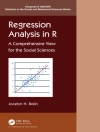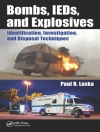Driving with Care: Education and Treatment of the Underage Impaired Driving Offender is a supplementary guide for the Driving with Care Series. It deals specifically with Adolescent/young adult impaired driving, which presents a host of special challenges and special treatment issues. Underage impaired driving represents 15% of the DUI arrests nationwide, which translates into roughly 150, 000 individuals a year. Underage drivers present a special challenge for education and treatment as their motivation to drink and drive is often quite different from the adult offender. Thus, the authors have compiled a rich set of educational protocols and treatment strategies that can supplement the various levels of treatment provided in all three Driving with Care workbooks.
Section I provides a theoretical foundation for understanding underage impaired driving, including the scope, incidence, and prevalence of the problem and defines the causal and risk factors associated with underage drinking and driving. It also defines and covers legal and regulatory interventions that have been effective for treatment and provides guidelines that enhance the treatment and rehabilitation of this group. Section II provides specific guidelines and enhancements for the delivery of DWC for underage drivers, including activities, handouts, and various assessment tools.
SAGE offers treatment and training programs for mental health providers that you can easily incorporate into your existing programs.
Inhaltsverzeichnis
Introduction
SECTION I: THEORETICAL AND FOUNDATIONAL PERSPECTIVES: Defining the Problem, The Targets for Change and Intervention Approaches
Ch 1. Theoretical and Conceptual Framework for Understanding Adolescent Problem Behavior
Ch 2. Scope of the Problem: Incidence, Consequences, and Costs
Ch 3. Prevalence and Consequences of Alcohol and Other Drug Use in Underage Populations
Ch 4. Risk, Causal and Dynamic Factors Related to Underage Drinking and Drug Use
Ch 5. Causal and Dynamic Factors Related to Underage Impaired Driving
Ch 6. Assessment of the Underage Impaired Driving Offender
Ch 7. Interventions Based on Community Regulations and Laws
Ch 8. Interventions and Operational Guidelines for Underage Imparied Driving Offenders
SECTION II: GUIDELINES AND ENHANCEMENTS FOR THE DELIVERY OF DRIVING WITH CARE (DWC) TO UNDERAGE IMPAIRED DRIVING OFFENDERS
Introduction to Section II
Level I Education: Alcohol, Other Drugs and Driving Safety Education
Level II Education: Alcohol, Other Drugs and Driving Safety Education
Level II Therapy: Alcohol, Other Drugs and Driving Safety Education
List of Tables
List of Figures
Über den Autor
Harvey B. Milkman, Ph D received his baccalaureate degree from City College of New York and his doctorate from Michigan State University. He is currently professor of psychology at Metropolitan State College of Denver. His doctoral research was conducted with William Frosch, MD, at Bellevue Psychiatric Hospital in New York City, on the User’s Drug of Choice. From 1980–1981, he completed a sabbatical exploration of addictive behavior in Africa, India, and Southeast Asia; in 1985 he was recipient of a Fulbright-Hays Lectureship award at the National University of Malaysia. He has represented the United States Information Agency as a consultant and featured speaker in Australia, Brazil, Iceland, The Netherlands, Peru, Turkey, and Yugoslavia. He is principle author with Stanley Sunderwirth of “The Chemistry of Craving, ” and author of “Better than Dope, ” featured articles in Psychology Today, October, 1983 and April, 2001 respectively. From September 1992–June 2002, he was author, principal investigator, and director of Project Self-Discovery: Artistic Alternatives for High-Risk Youth, a national demonstration model funded by The Center for Substance Abuse Prevention and the Edward Byrne Foundation.












